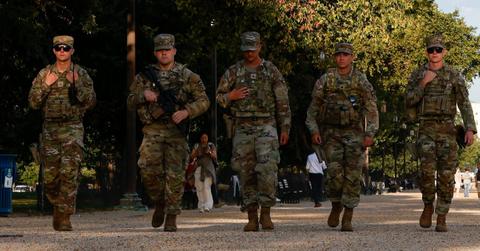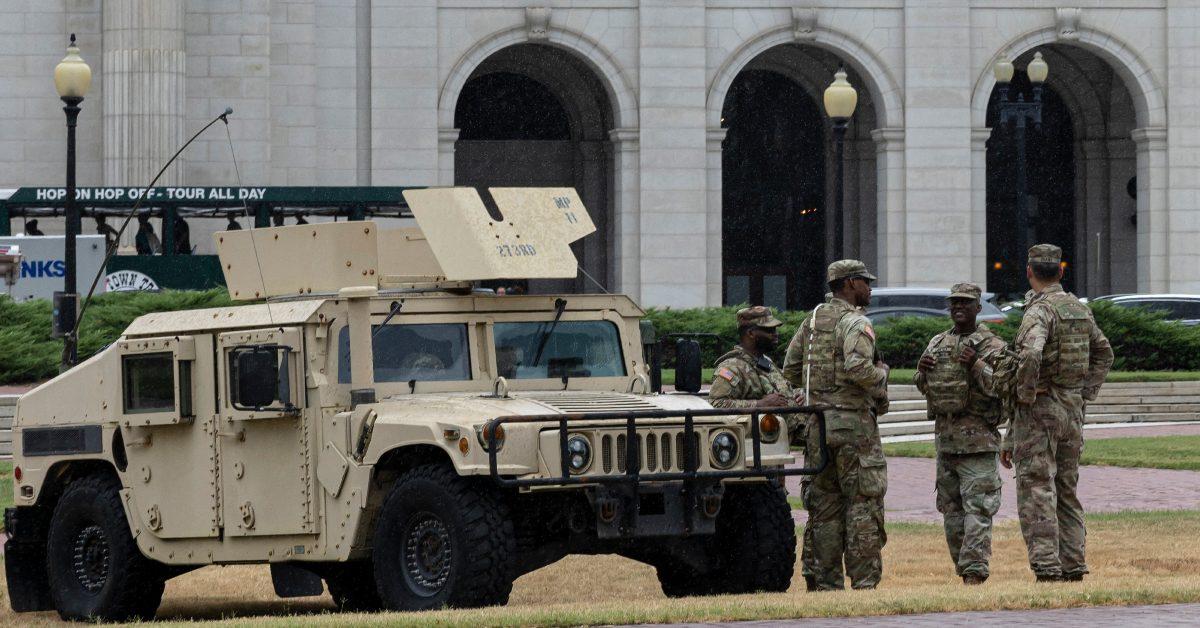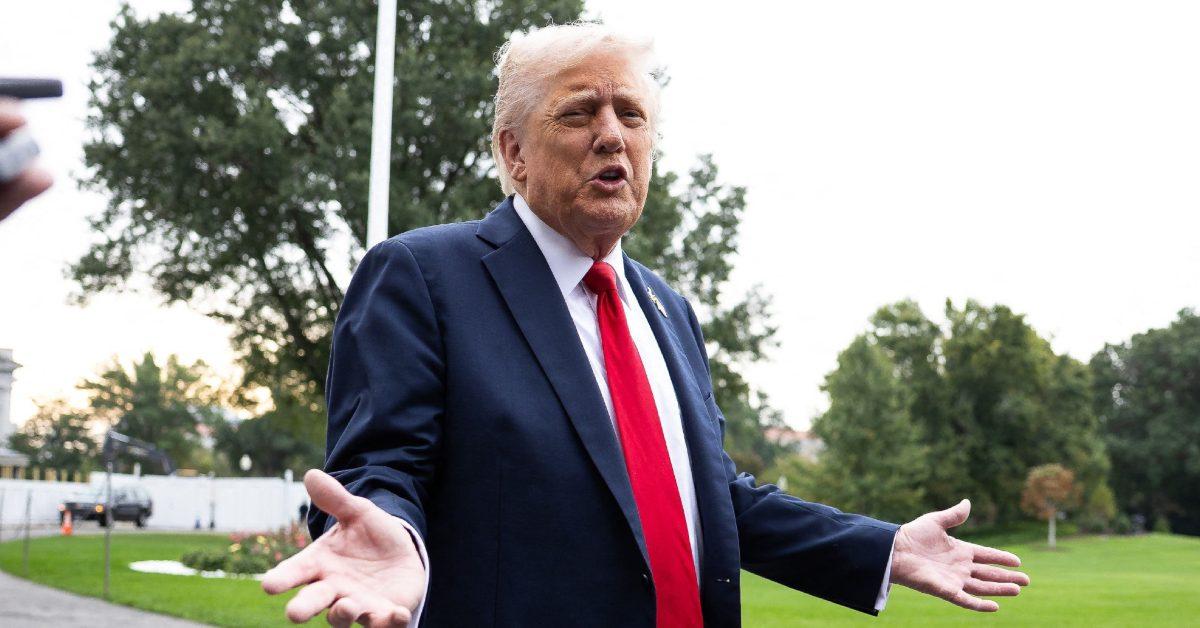Trump Floats Use of 1807 Insurrection Act — Does He Have the Authority?
“We have an insurrection act for a reason.” — Donald Trump
Published Oct. 7 2025, 12:18 p.m. ET

Enacted in 1807, the Insurrection Act was originally signed into law by Thomas Jefferson to deter Aaron Burr from claiming territory after killing Alexander Hamilton in a duel, per History. While Burr didn’t face criminal consequences for Hamilton’s death, Jefferson was adamant about preventing him from launching a rebellion and seizing land in the West to form what History describes as his own “spinoff nation.”
When James Madison said the Constitution didn’t allow military action to suppress such a rebellion, Jefferson drafted a proclamation permitting military intervention, so long as the burden of proof was met. Although Burr was taken into custody before the Insurrection Act officially became law, his actions inspired it.
The Act has been used sporadically since, but it’s back in the spotlight as President Donald Trump threatens to invoke it. Here’s what could happen if it’s enacted.
What happens if the Insurrection Act is invoked?

If the Insurrection Act of 1807 is invoked, it allows the president to deploy federal troops, including the National Guard, to suppress an insurrection, defined as a violent uprising or rebellion against the government. Under 10 U.S.C. §252, the president can use the militia or armed forces when “unlawful obstructions, combinations, or assemblages, or rebellion against the authority of the United States” make it impossible to enforce federal law.
In other words, if people in a state rise up violently and law enforcement can’t maintain order, the Act gives the president authority to step in with militia, armed forces, or both to enforce state and federal laws. When invoked, the president must issue a proclamation ordering lawbreakers to disperse and “retire peaceably to their abodes within a limited time.”
It’s worth noting that under the Insurrection Act, federal troops work alongside local police, unlike martial law, which can reduce or override local authority. The Act doesn’t replace law enforcement; it simply provides additional support to regain control in violent situations where state and federal laws are being ignored and local authorities can’t maintain order.
Can Donald Trump invoke the Insurrection Act?
Trump can invoke the Insurrection Act, but only in specific circumstances. If an uprising prevents federal laws from being enforced, he can call federal troops or the militia into service to enforce those laws and suppress the rebellion. He can also act when both state and federal law enforcement are hindered. Of course, proof of a rebellion or laws being broken is required before action can be taken.

Under 10 U.S.C. §251, though, if the insurrection is against a state government, the state legislature, or, if the legislature cannot come together, the governor must request federal assistance before the president can intervene. As you can see, these provisions overlap. If the President can show both state and federal laws are being obstructed, he has more authority, though he may face pushback from lawmakers who oppose using the Act.
Still, Trump is willing to use it when necessary. During an Oct. 6, 2025, press conference, Trump blatantly stated, “We have an Insurrection Act for a reason. If I had to enact it, I’d do that. If people were killed and courts were holding us up, or governors or mayors are holding us up, sure I’d do that.”
When was the Insurrection Act last used?
The Insurrection Act was last used 33 years ago, in 1992, during the George H.W. Bush administration. Bush invoked it in response to the Los Angeles riots that erupted after a jury acquitted four white officers who had beaten Rodney King, according to the Brennan Center for Justice.
Before that, President Dwight D. Eisenhower used the Act in 1957 in Little Rock, Ark., to enforce the full desegregation of Central High School.